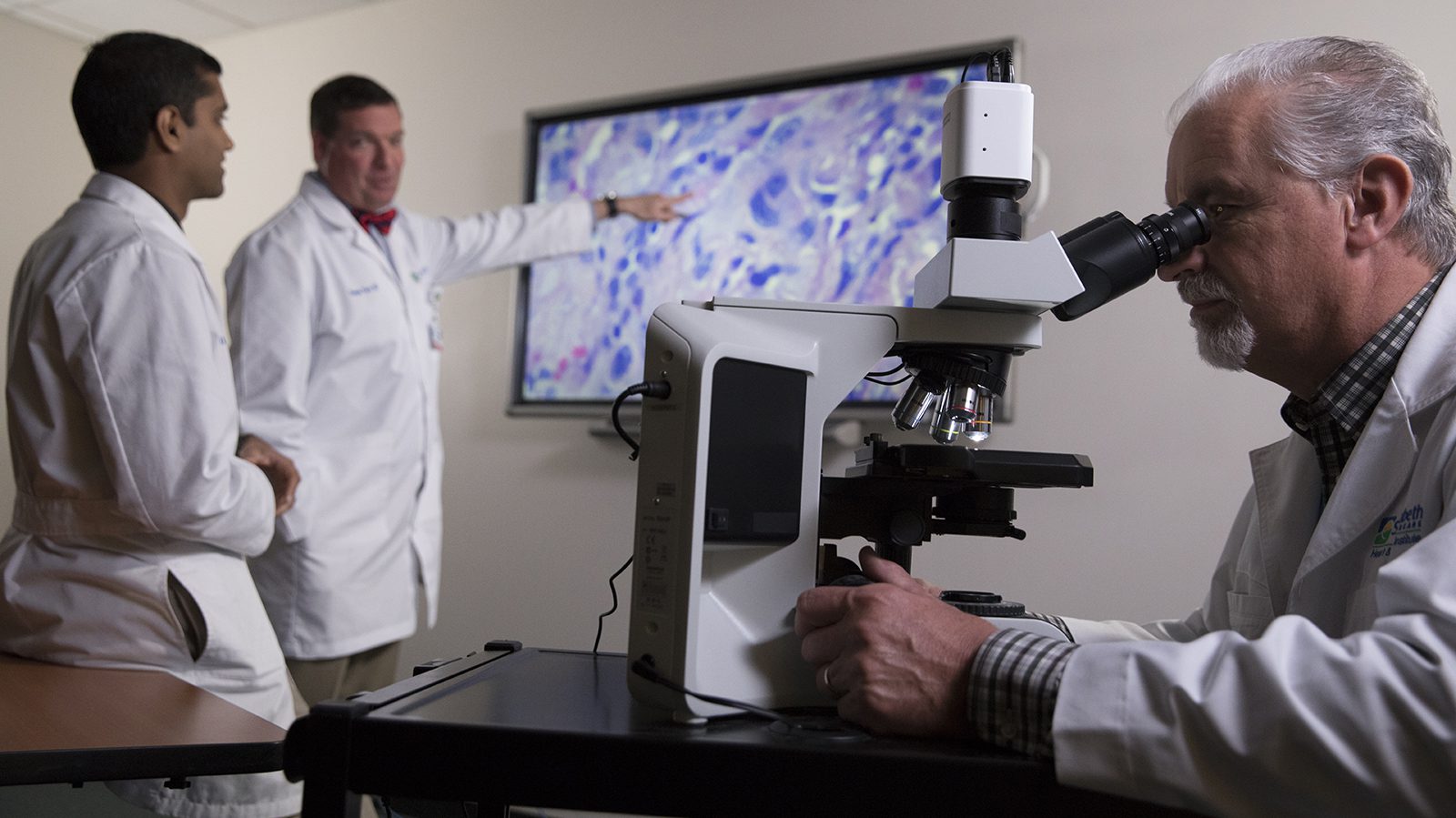Kidney/Renal Cancer
Kidney cancer, also called renal cancer, starts in the kidneys — two bean-shaped organs about the size of a fist. Your kidneys are located above your waist on either side of your backbone. Inside your kidneys are tiny tubes that filter and clean your blood by removing waste and producing urine.
There are several types of kidney cancer, including:
Risks Factors for Kidney/Renal Cancer
Your risk of developing kidney cancer increases with age. Other risk factors include:
- Certain inherited syndromes including von Hippel-Lindau disease, Birt-Hogg-Dube syndrome and tuberous sclerosis complex.
- Family history of kidney cancer.
- High blood pressure.
- Obesity.
- Smoking.
- Treatment for kidney failure.

Make an appointment
For more information, please contact your oncologist or the Cancer Care Center at (859) 301-4000.
Symptoms of Kidney/Renal Cancer
Kidney cancer may not cause any recognizable symptoms in its early stages. As the disease progresses, symptoms may include:
- A lump in your abdomen.
- Blood in your urine.
- Excessive fatigue.
- Loss of appetite.
- Persistent back or side pain.
- Recurring fevers.
- Unexplained weight loss.
Diagnosis of Kidney/Renal Cancer
Diagnosing kidney cancer usually begins with a physical examination and review of your personal and family medical history.
Diagnostic testing may include:
- Blood tests and urinalysis.
- Imaging tests including X-rays, CT or MRI scans and ultrasound.
- Kidney tissue biopsy.
Treating Kidney/Renal Cancer
Treatment for kidney cancer often begins with surgery. The goal is to remove all the cancer cells while retaining normal kidney function. There are two types of surgery that may be used, depending on your general health and the specifics of your cancer:
Nonsurgical treatments include:
Your Cancer Care Team
The team includes medical oncologists specializing in immunotherapy and precision medicine, surgical oncologists, radiation oncologists, interventional radiologists, thoracic surgeons, pain management specialists, genetic counselors, pathologists, nutritionists, pharmacists, nurses and support staff. They work together to create a treatment plan that’s just right for you.


